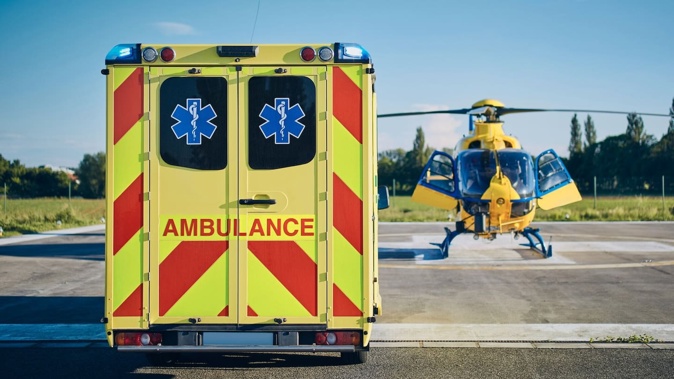

A teenager’s death from complications after surgery revealed troubling gaps in complex care across the South Island at the time, the Health and Disability Commissioner says.
The 19-year-old died in 2015 in circumstances where his family never had the chance to say goodbye.
In addition, within minutes of them being told the teen was “brain dead” they were asked if they would like to donate his organs.
The teen’s family was also told by a social worker that it was up to them to organise transportation of their son’s body back to where they lived.
A complaint to the coroner was referred to the HDC.
In a decision released today, Deputy Health and Disability Commissioner Vanessa Caldwell found that Health NZ breached a section of the Health and Disability Services Consumers’ Rights code, around gaps in information and delays associated with the air retrieval team.
 Deputy Health and Disability Commissioner Dr Vanessa Caldwell said there was dispute as to whether the teen would have benefited from an earlier hospital transfer. Photo / James Gilberd Photography Ltd
Deputy Health and Disability Commissioner Dr Vanessa Caldwell said there was dispute as to whether the teen would have benefited from an earlier hospital transfer. Photo / James Gilberd Photography Ltd
She was also critical of why alternative transport options had not been considered for the teen who had been taken to and from various hospitals for specialised treatment and care.
Health NZ had sincerely apologised for its departure from the standard of care.
Death unexpected
The teen died unexpectedly after suffering complications related to a postoperative wound infection.
He had undergone elective surgery at a South Island tertiary hospital for the removal of benign tumours from his nervous system.
Caldwell said it was complicated by postoperative infection and meningitis which required further hospitalisations at a secondary hospital and later, another tertiary hospital.
The postoperative infection was treated successfully, but the teen continued to suffer complications.
He was later re-admitted to hospital with ongoing headaches and vomiting but a further lumbar puncture was not done because of concerns over how the teen was coping.
A decision was made to send him back to the tertiary hospital where the initial surgery was done, to insert a shunt to drain excess fluid surrounding his brain and spinal cord.
Because he was considered “neurologically stable” and there were operational delays by the air retrieval team, a decision was made to delay the transfer for a few days.
While waiting, he collapsed and had a cardiac arrest. The neurosurgeon’s team rushed to the hospital where he was and administered critical care but he continued to deteriorate.
He was transferred back to the tertiary hospital but certified brain dead after he arrived.
Outcome linked to delayed transfer
Caldwell said there was dispute as to whether he would have benefited from an earlier transfer.
Caldwell acknowledged the family’s concerns regarding the neurosurgical care provided but she considered that Health NZ provided him with a reasonable standard of care.
She said the teen’s poor outcome was attributed to the delay by the air retrieval team in transferring him.
However, his care was triaged and prioritised appropriately based on the information available to the team at the time, Caldwell said.
An initial referral was made at 6pm and triaged by the flight coordinator with input from a senior medical consultant.
Because he was considered neurologically stable and the air retrieval team was scheduled to return from another job, a collective decision was made to depart the next morning, with an expected arrival back by early afternoon.
The air retrieval team stated that this was the nature of prioritisation under a resource-constrained environment, Caldwell said.
On the morning of the scheduled transfer, a further delay occurred because a flight nurse had to stand down for rest after attending an overnight retrieval.
Efforts were made to contact other flight nurses and intensive care nurses who were not on the roster, but none were available.
At the time, the air retrieval team had been experiencing increased demands but nurse staffing levels had not increased, Caldwell said.
She said between March 2015 and March 2016, there were 60 occasions when a second retrieval had been requested but could not respond.
An expert’s advice was that road transfer could have been considered as an alternative option but the surgeon disagreed.
He said that in his experience, moving patients by road had led to a negative outcome, because of the lack of ambulance staff and inability of the ambulances to cross boundaries between healthcare districts at the time.
List of changes made since
The air retrieval team had since made a comprehensive list of changes, including additional nursing staff, and has introduced improved communication and operational guidelines.
Caldwell said a “significant number of changes” to the health sector had since been made.
She said the amalgamation of the 20 district health boards into Health NZ had created better service integration, sharing of resources, and communication between treating teams.
Health NZ Southern and Health NZ Waitaha Canterbury districts were asked to provide a formal written apology for the breaches identified in the report.
Tracy Neal is a Nelson-based Open Justice reporter at NZME. She was previously RNZ’s regional reporter in Nelson-Marlborough and has covered general news, including court and local government for the Nelson Mail.
Take your Radio, Podcasts and Music with you










